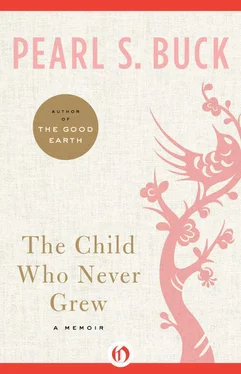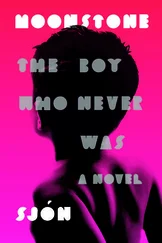Carol also demonstrated a remarkable aptitude for different sports, perhaps because her physical abilities were always far above the norm for individuals with PKU. At an early age, she learned to roller skate proficiently. She always loved her three-wheeled bicycle and rode it around the grounds until the final few years of her life. Throughout the years, she excelled in the Special Olympics, mainly in running events, and proved herself proficient in shooting baskets just a few years ago.

Carol Buck at 70
As Carol grew older, she was trained to do simple vocational tasks. Probably sometime in her fifties, she was placed in a workshop on the school grounds. Unfortunately, this endeavor did not last long. First, Carol’s short attention span made it difficult for her to remain focused on her work. Second, although her fine motor skills were good, she quickly became frustrated when pieces did not fit together easily. And third, there was less one-on-one training than Carol had been accustomed to receiving in school, and she had trouble functioning without this intensive guidance. Finally, the staff at Vineland decided that it was not in Carol’s best interest to continue with the vocational training, so another avenue was opened up for her.
Carol became an active participant in the Senior Enrichment Program at the school. She joined a group of adults her age, and began participating in group activities suited to her age and skills. The group members went on field trips, cooked, worked on craft projects, and participated in a variety of other activities you could find in any community-based Senior Center. All activities were supervised by staff members, who continued to help Carol and the others improve their skills.
Besides growing mentally and physically, Carol also developed her own personality. Although sometimes she appeared aloof, she was always a friendly, outgoing person. At times, she could express deep caring — for example, by putting her hand on my shoulder, looking intently into my face, and calling me “Honey.” She could be very demanding in a loud, authoritative way, but usually her behavior improved if she was corrected with gentle, persistent firmness. Generally, she got along better with the staff at Vineland than she did with her peers. After all, the staff members were the ones who always assisted her and gave her support and guidance, and to whom she communicated her needs and wants. In the early years, she was close with the housemother who lived in her cottage and oversaw the care of all the girls in the cottage. Later, of course, there were other housemothers. After Vineland stopped using housemothers, there were still many caring women who came in for different shifts during the day and night. Despite Carol’s occasional bossiness, she was well liked by the staff. The staff members treated her with jovial good humor, and, frankly, sometimes spoiled her.
After I became Carol’s guardian in 1973, I began making quarterly visits to Vineland. For nearly twenty years, we spent many happy times together, enjoying the activities that my sister quietly dictated. Whenever I went to visit, I usually brought her a package of gifts such as clothing, records, a harmonica or similar musical toy, candy, peanuts, and instant coffee and pumpkin pie for our treat. Carol would examine her gifts, and then usually ask to go for a short ride in my car. Then it was back to the senior cottage where she lived. There we ate our treat and listened to the new records. Our visits usually lasted for several hours — Carol always watched me carefully to make sure I did not leave too soon. Carol’s speech was not clear, and since I did not see her daily, I often found it difficult to understand her sentences. But when she spoke in clear, single words, I could usually understand what she was trying to express. She seemed to understand me quite well, but I had to keep the communication simple.
Throughout the years since our mother’s death, I remained my sister’s link to her past, as well as her support in the present. As her only immediate family, I tried to help her feel that she was still a part of someone else’s life, even though Mother no longer came to visit. I never tried to explain about Mother’s death, partly because Carol never asked about her, and partly because I doubted that she would understand the concept of death. But it was clear that she remembered her family. During one of my early visits, I came across three professional photographs and asked her who they were. To each one, and appropriately, she answered: “Father, Mother, Janice.” (My picture had been taken when I was four, and I could see no resemblance to the way I look now.) We each went our own ways, and we each understood the other’s independence, but our moments together remained special for us both.
I truly believe that Carol had a good life at Vineland and was able to mature in her own way, despite the lack of close family ties. In March 1992, she celebrated her seventy-second birthday. This was something we had not been certain would occur. In mid-1991 she became ill, and a routine chest x-ray revealed cancer in the left lung. A biopsy confirmed the cancer, and after further testing the decision was made to excise the tumor. Unfortunately, the tests had not shown the extent of the metastasis, so although the operation was performed, the tumor was not removed.
Carol was a good patient, and recovered well from her operations. Mild doses of chemotherapy gave her relief from serious symptoms and she made considerable improvement for the first few months. Then, another chest x-ray disclosed that the cancer was beginning to progress. Carol had no respiratory distress, however, so she was allowed to continue with her daily, active routine. She was carefully monitored, and received the best of care from an attentive and loving staff.
Carol Buck died peacefully in her sleep during the afternoon of September 30, 1992. She had begun to slow down considerably during the preceding weeks, but did not show any discomfort or pain. A simple memorial service was conducted by the staff and residents of the Training School, and interment was on the grounds where she had spent so many years of her life. I know she will be remembered fondly.
If I played a role in shaping Carol’s life, I think it is fair to say that she also played a role in shaping my life. I think that I became the person I am at least in part because she was my sister. I am not a person who easily judges people by what they can or cannot do, nor do I judge them by what they think, or how they may perform a task. Each of us has a way of doing what we can, and in what manner we can. I have always felt close to those who did not have the abilities to succeed or perform as so-called “normal” people did, but it was not until now, when asked to write this Afterword, that I realized that each of us, no matter what our talents, has our own voice and can help others in our own way.
Another gift that Carol gave me is a special insight into our mother’s thoughts and actions. Specifically, I drink I understand something about her relationship with her own children, as well as her need to reach out to other children throughout the world. This insight has come only recently, as I have learned more about Carol’s early years and my mother’s anguish over this birth child. As I look back, I wonder how different her life might have been if it were not for this child. Were the compulsive drives to achieve her monumental goals spurred on by her need for perfection — her need to overcome her feelings of inadequacy caused by the birth of Carol — and her need to provide for the care of this daughter?
Читать дальше













